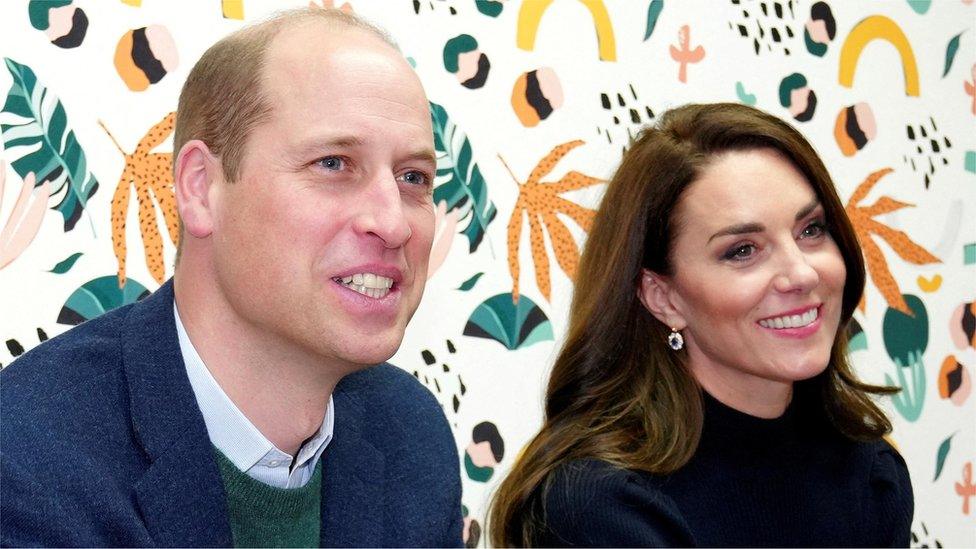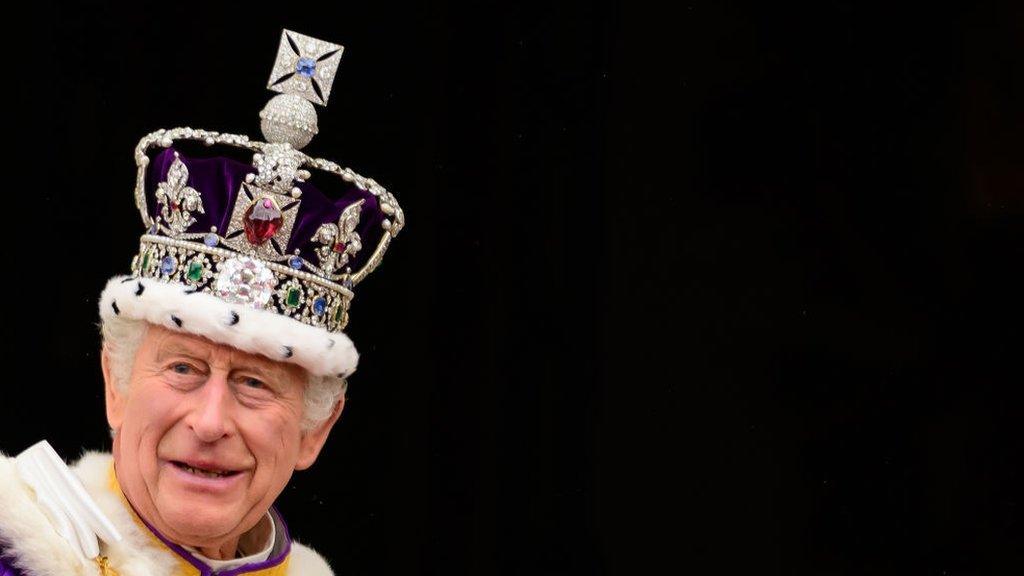King Charles's cancer was 'caught early', Rishi Sunak says
- Published
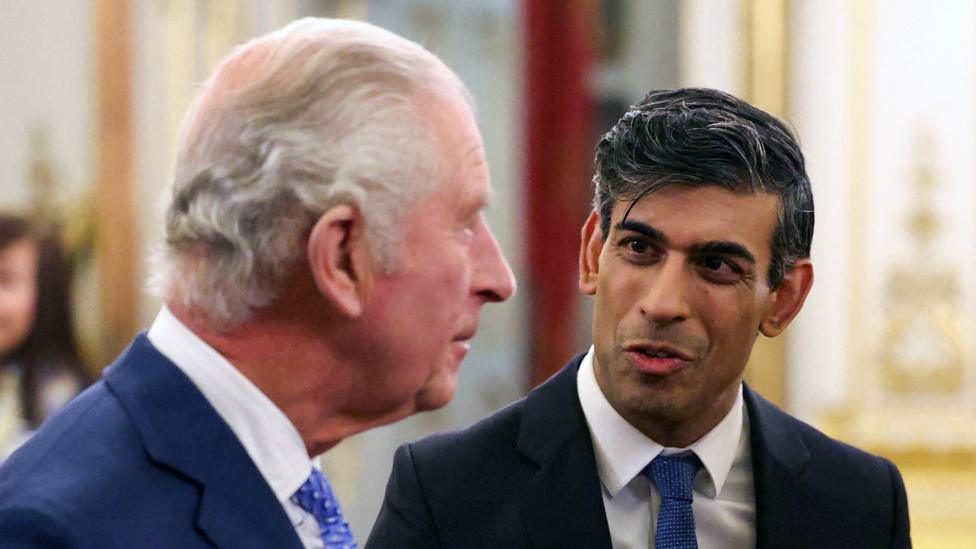
King Charles III's cancer was "caught early" and normal communications between the monarch and No 10 are continuing, Rishi Sunak told the BBC.
The prime minister said he was left "shocked and sad" by the news but is in "regular contact" with the monarch.
The King, 75, has postponed all public duties and began "regular treatments" for his condition on Monday.
The Palace said he did not have prostate cancer, but few further details have been disclosed.
Mr Sunak told BBC Radio 5 Live: "He'll just be in our thoughts and our prayers - many families around the country listening to this will have been touched by the same thing and they know what it means to everyone."
It is understood the King's weekly audiences with Mr Sunak will continue in person, unless doctors advise he limits such contact.
The Palace has stressed the King will continue with his constitutional role as head of state, including completing paperwork and holding private meetings.
On Monday, the Palace said the monarch "remains wholly positive" about his treatment and "looks forward" to returning to his normal schedule
The King returned to London for outpatient cancer care from his home in Sandringham, where he was seen waving to crowds during a 10-minute walk to church the previous day.

King Charles's cancer diagnosis

The Prince of Wales - who was due to return to public duties this week following the Princess of Wales's abdominal surgery last month - is expected to cover some of his father's engagements while the King receives care.
The King informed both his sons personally about his diagnosis and Prince William is said to be in regular contact with his father.
The Duke of Sussex, who lives in the United States, spoke to his father and is travelling to the UK to see him. According to reports, he could arrive as early as Tuesday afternoon.
The Palace has not indicated when the King will return to public duties.
It is unclear whether official visits to Canada, Australia, New Zealand and Samoa scheduled for later this year will go ahead.
The King's cancer diagnosis follows a procedure at a private London hospital more than a week ago for a "benign" prostate condition.
Listen: PM 'shocked and sad' at King's cancer diagnosis
On Monday, the Palace said "a separate issue of concern was noted and subsequently diagnosed as a form of cancer" during that treatment.
The King chose to go public about his cancer treatment, the Palace said, as he had been a patron of a number of cancer-related charities when he was Prince of Wales.
The Royal Society of Medicine thanked the King for highlighting "how cancer is indiscriminate" and urged members of the public eligible for cancer screenings to make an appointment.
Simon Lewis, who was Queen Elizabeth II's press secretary between 1997 and 1999, praised the King for his openness, adding "20 years ago there would have been a very abrupt, short statement and that would have been it".
He told Radio 4's Today programme the cancer diagnosis would be "a lot to process" but said "I know from people around him that he will be absolutely itching to continue" with his formal constitutional duties behind the scenes.
One-in-two people in the UK develop some kind of cancer during their lifetime.
There are more than 200 types of cancer - the most common ones in the UK are breast, lung, prostate and bowel, according to the NHS website.
For many types of cancer, the chance of getting it increases with age. UK figures suggest, on average each year, more than a third (36%) of new cancer cases were in people aged 75 and over.
You can get all the latest royal stories and analysis straight to your inbox every week with our Royal Watch newsletter - sign up here
Additional reporting by Sean Coughlan, royal correspondent
Related topics
- Published5 February 2024
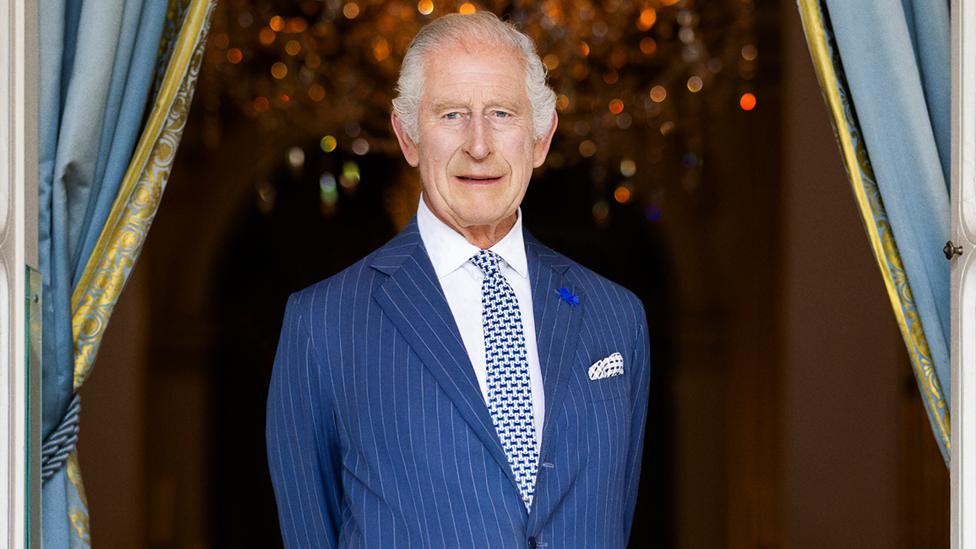
- Published5 February 2024
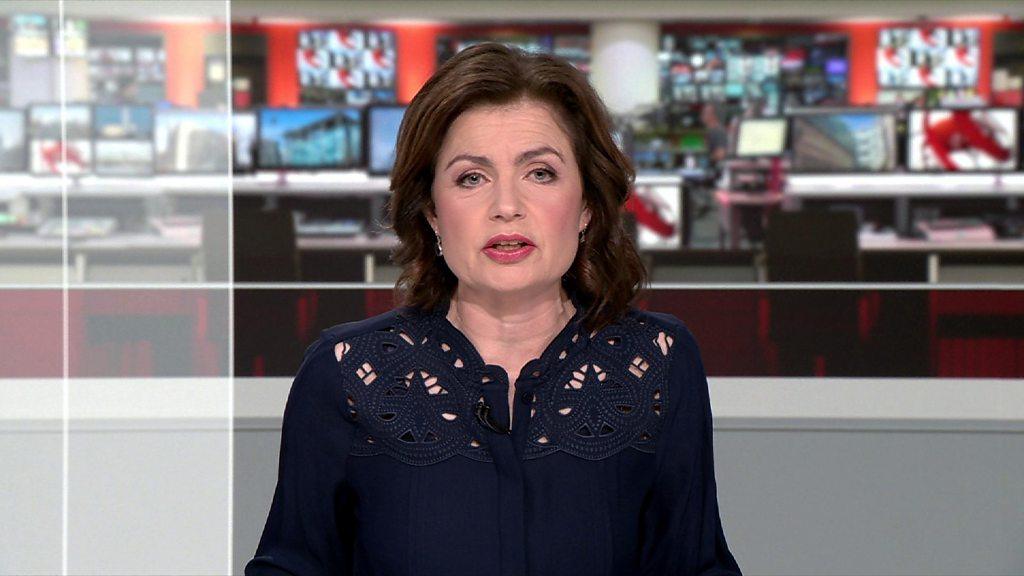
- Published5 February 2024
